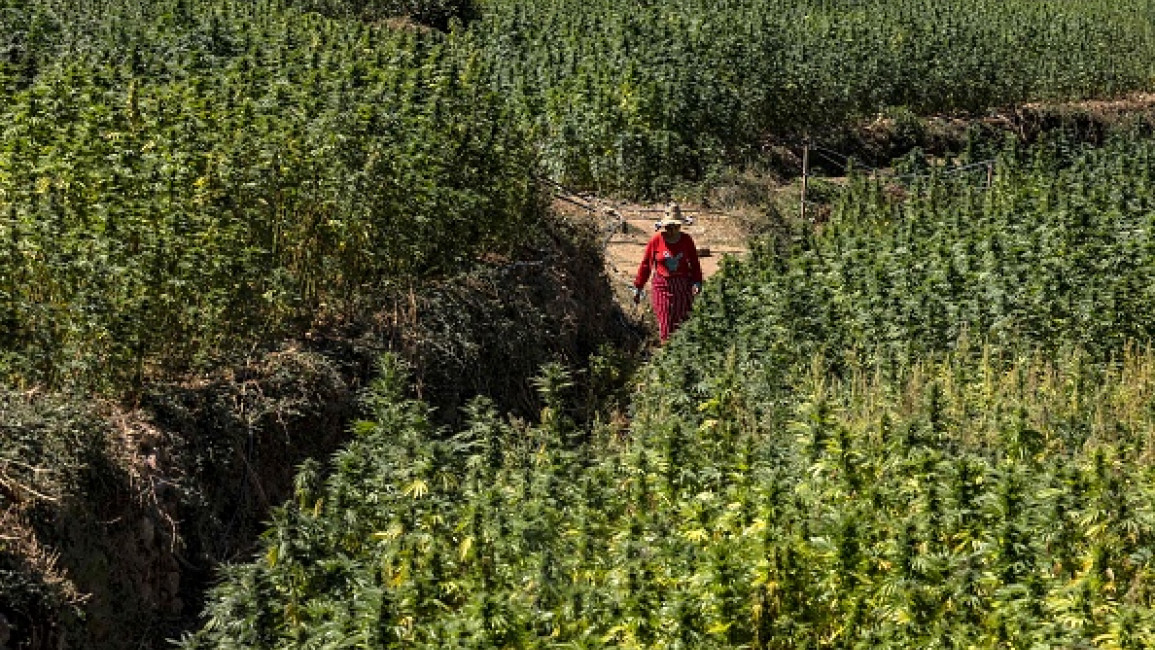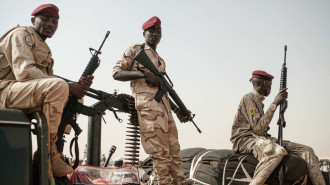Getting out of hiding, Morocco's cannabis farmers celebrate freedom after 'royal pardon'
In Morocco's Rif mountains, the atmosphere is saturated with celebration after the country's monarch "pardoned" nearly 5,000 cannabis farmers—a plant once strictly banned in the Muslim state.
For four years, Abdelalli, a cannabis farmer near Chefchaouen, northern Morocco, lived the life of a fugitive in his own hometown. Now, he's free to reunite with his family, meet his daughter, and tend to the plant that's become a pride and a curse for his region.
"I spent nights in forests or at friends' houses. The police were looking for me, so I couldn't see my family regularly", Abdelalli, a 36-year-old cannabis farmer, told the New Arab.
Due to his situation, Abdelalli was unable to complete any administrative processes that required face-to-face interaction with authorities, including renewing his ID or officially registering Nora as his daughter.
"Nora is three, and she barely knows me. But now, I have all the time to make up for the years I couldn't be her father", Abdelalli added, smiling at the picture of his daughter tucked in his wallet.
In May 2021, the Moroccan Parliament reversed six decades of cannabis criminalisation. It passed a law that legalised the plant for pharmaceutical and industrial purposes, aiming to capitalise on the country's cannabis potential, estimated at US$15 billion. Morocco has retained a strict ban on production for recreational use, mainly because of the religious opposition to smoking the plant.
However, farmers already arrested or wanted in cases related to cannabis cultivation continued to live in an unlawful situation.
Three years after legalisation, Moroccan King Mohammed VI "kindly granted pardon to 4,831 people convicted, prosecuted, or wanted in cases linked to the cultivation of cannabis," announced the Justice Ministry on 19 August.
'A new page with Rabat'
Unlike Abdelalli, other cannabis farmers were caught while on the run, either when they let their guard down or when they decided that having a last hot meal with their family was better than spending the rest of their lives in hiding.
Ahmed, a 27-year-old cannabis farmer, was one of them. "All my brothers went to the city, but I decided to stay and take care of my mother and the land my father left us", he said.
He was convicted a few months before legalisation, and since then, he has spent nearly four years in the local prison, reminiscing about his wasted youth—and he still does, even after his release.
"It's unfair what happened to us. We were never criminals. We are farmers. We are just trying to preserve our land", said Ahmed, his voice filled with anger.
His mother, still weeping with both joy and anguish, seemed more hopeful and patient than her son. "Our generation also suffered, maybe a lot more. But this release is the result of years of struggle and resilience. It's a win for the Rif", said Amna, mother of the cannabis farmer.
The atmosphere is similar in most houses in the Rif mountains: a lot of tears, gratitude to the king, and backtracking on criticising the state in the name of beginning a new chapter of trust and friendship with Rabat.
The attacks against cannabis farmers pre-legalisation have always taken on a political dimension.
Nothing in the Rif, an Amazigh region branded as a home of rebels and outspoken opposition figures, can escape the political tension between the population and "Rabat"—a history of burning farmers' crops and arresting protesters calling for social justice has not helped the situation.
However, Rabat has voiced its intent to make amends, even if it's taking more time than many of the region's youth wishes.
"The situation was disgraceful because these Moroccans felt that they weren't full citizens", said Moroccan MP Noureddin Medyan.
"[The pardon] represents a clear signal for those who wish to grasp it: closing the chapter of the past with the Rif and starting a new one", added the MP.







 Follow the Middle East's top stories in English at The New Arab on Google News
Follow the Middle East's top stories in English at The New Arab on Google News
![Lebanon after strikes [Getty]](/sites/default/files/styles/image_330x185/public/2184409977.jpeg?h=a5f2f23a&itok=7wpfQMyI)
![G20 Brazil [Getty]](/sites/default/files/styles/image_330x185/public/2184389194.jpeg?h=a5f2f23a&itok=t1DchCMY)
